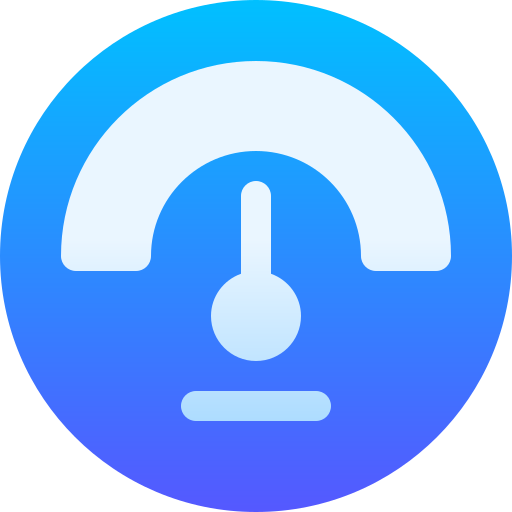Guides
Safeguarding Your Digital Fortunes: Tips for Securing Bitcoin Holdings
In the realm of digital assets, Bitcoin stands as a beacon of financial sovereignty and decentralization.
As individuals increasingly turn to Bitcoin as a store of value and investment, ensuring the security of their holdings becomes paramount. With the decentralized nature of cryptocurrencies comes great responsibility, as users are solely responsible for safeguarding their assets.
In this article, we'll explore effective strategies for individuals to secure their Bitcoin holdings against various threats and risks.
Utilize Secure Wallets
- Hardware Wallets: Considered one of the safest options, hardware wallets are physical devices that store Bitcoin private keys offline. These wallets offer unparalleled security by keeping the keys isolated from internet-connected devices, mitigating the risk of hacking or malware attacks.
- Paper Wallets: For those seeking a low-tech solution, paper wallets provide a secure means of storing Bitcoin offline. A paper wallet consists of a printed piece of paper containing the public address and private key, which can be generated securely and kept in a safe location.
- Multi-Signature Wallets: Multi-signature wallets require multiple private keys to authorize a transaction, adding an extra layer of security. Users can distribute the keys among trusted parties, reducing the risk of single-point failures or theft.
Implement Strong Security Practices
- Secure Passwords: Create strong, unique passwords for all accounts associated with Bitcoin holdings. Avoid using easily guessable passwords and consider utilizing password managers to generate and store complex passwords securely.
- Two-Factor Authentication (2FA): Enable 2FA wherever possible to add an additional layer of security to accounts and wallets. Utilize authentication methods such as SMS codes, authenticator apps, or hardware tokens to prevent unauthorized access.
- Update Software Regularly: Keep all software and devices, including wallets and operating systems, up to date with the latest security patches and updates. Outdated software may contain vulnerabilities that could be exploited by attackers.
Exercise Caution Online
Beware of Phishing Scams: Exercise caution when clicking on links or providing sensitive information online, as phishing attacks targeting cryptocurrency users are prevalent. Verify the authenticity of websites and emails before disclosing any personal or financial information.
Secure Communication Channels: When discussing Bitcoin holdings or transactions online, use encrypted communication channels to protect sensitive information from interception or eavesdropping.
Backup and Disaster Recovery
Regular Backups: Regularly backup wallet files, private keys, and recovery seeds in multiple secure locations. In the event of hardware failure or loss, having access to backups ensures that Bitcoin holdings can be recovered.
Test Recovery Procedures: Practice recovering wallets from backups to ensure that the process works smoothly in case of emergency. Familiarize yourself with recovery procedures and keep documentation in a safe place.
Securing Bitcoin holdings requires diligence, vigilance, and adherence to best security practices. By utilizing secure wallets, implementing strong security measures, exercising caution online, and maintaining robust backup and recovery procedures, individuals can mitigate the risk of theft, hacking, and loss.
Remember that with great control over your Bitcoin comes great responsibility, and taking proactive steps to secure your holdings is essential in safeguarding your digital fortunes.
Latest Articles
-
How can investors track Bitcoin whale movements?
-
What is Wallet Address?
-
What are Bitcoin whales and why are they important in the cryptocurrency market?
-
Top Bitcoin Wallet Addresses 2024 (Bitcoin Richlist) : Insights into Crypto Wealth Distribution
-
What is Bitcoin Block Weight?
-
Understanding the Impact of the Bitcoin Mempool on Transactions
-
Crypto whale tracking : WhaleAlertz.com. Find Bitcoin Whales, Transactions, Blocks, Alerts
-
How to use a Bitcoin blockchain explorer?
-
How does Bitcoin work?
-
What is a whale alert?
-
Bitcoin Whales: Who They Are and How They Affect the Market?
-
20 Fascinating Facts About Bitcoin
-
Bitcoin Price Dynamics: Understanding Volume, Market Cap, and Price Determinants
-
Unearthing Digital Gold: A Beginner's Guide to Bitcoin Mining
-
Exploring Bitcoin Forums: A Hub for Community, Knowledge, and Discussion
-
Demystifying Bitcoin Transactions: How Does Sending Bitcoin Work?
-
Bitcoin Halving Details
-
Bitcoin Price in India (BTC/INR: Convert Bitcoin (BTC) to Indian Rupee (INR))
-
What is Block Nonce in Bitcoin?
-
What is Bitcoin Halving?
-
Bitcoin Scams: Protecting Yourself from Fraud
-
Understanding Bitcoin Blocks: The Building Blocks of Blockchain
-
The Genesis of Bitcoin: Unraveling the Mystery of Satoshi Nakamoto and the Birth of a Digital Revolution
-
What factors contribute to the increase in bitcoin blockchain size over time?
-
Can I make money from Bitcoin trading?



.png)




